Randi Zuckerberg's Blog, page 7
June 13, 2018
Radio Recap: Black Women Talk Tech

Black women are the leading sector of business starters in the US yet of all the venture capital distributed, 10% of funds go to non-white male founders with only .2% going to black female founders. This is $36,000 compared to the average $1.2 million awarded to leading recipients. This past March, Black Women Talk Tech hosted a “Roadmap to Billions Conference 2018” to make their case to help black women build the next billion-dollar company. The two-day conference took place at Microsoft’s headquarters in NYC and showcased top female founders from home décor and architectural design to NASA technology and virtual reality, to finance, education, marketing and everything in between. Some of the speakers at this year’s conference included Heather Hiles of the Gates Foundation; Jean Brownhill, CEO of Sweeten; and Healthy You Now founder, film producer, and better half of Spike Lee, Tonya Lewis Lee.
Black Women Talk Tech was formed in 2016 and founded out of the shared experiences of business owners Regina Gwynn, co-founder of TressNoire; Esosa Ighodaro, co-founder of COSIGN; and Lauren Washington, CEO and co-founder of KeepUp. Today all three ladies are here with me in-studio to talk tech and so much more.

Esosa Ighanoda
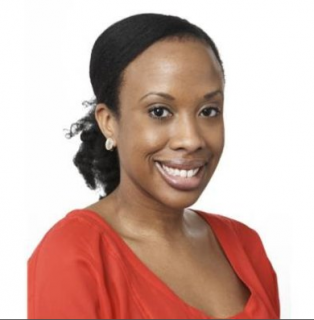
Lauren Washington

June 6, 2018
Radio Recap: #MeToo & the Workplace

From standup comedy to tech to Hollywood, and just about every industry in-between, have all been affected by #MeToo—and with the outstanding number of those who’ve experienced sexual harassment it’s no wonder why. In February, Stop Street Harassment released results from its national survey revealing 81% of women and 43% of men have experienced some form of sexual misconduct or assault in their lives. According to Forbes, since the first Bill Cosby trial in June of 2017 and as of May 14thof this year, 298 high-profile American executives have been let go because of sexual improprieties.Although the House of Representatives committed to training all workers, including its junior interns, on sexual harassment measures, current federal law only covers workplaces with 15 or more employees and the federal statute of limitations for filing suit can be as short as 180 days.
Even if a case is won, damages can be capped at $300,000 — or less if they work at a small company. So how are workplaces, and more male-dominated industries like the comedy circuit, increasing their efforts to eradicate sexual harassment? Is firing individual offenders enough?
Do there need to be workshops? Here with me to discuss #MeToo and Time’s Up in the workplace are Debbie Muller, the CEO and Founder of HR Acuity and comedian Joyelle Johnson to discuss sexual harassment in the comedy circuit.

Joyelle Johnson

Debbie Muller
May 30, 2018
Radio Recap: ADHD & Entrepreneurship

What do Virgin founder Sir Richard Branson, celebrity chef Jamie Oliver, actress Whoopi Goldberg, and brokerage founder Charles Schwab all have in common? They’re all successful entrepreneurs living with adult attention deficit hyperactivity disorder, or ADHD. According to the American Journal of Psychiatry, more than 4 percent of the adult population has ADHD and to some of those individuals, ADHD is both a blessing and a curse.
Psychiatrists around the globesay people with ADHD are natural entrepreneurs. Success magazine made claims that “some of the most successful entrepreneurs credit their attention-deficit/hyperactivity disorder for their accomplishments.” And most successful entrepreneurs that have ADHD see their condition not as a disorder, but as an advantage because their ADHD gives them innate energy, creativity, originality, insight and interpersonal skills.
So what is the link between entrepreneurship and ADHD, and how can someone with ADHD succeed in business? Joining me today to discuss ADHD and entrepreneurialism is serial entrepreneur and founder of the ‘Faster Than Normal’ podcast about ADHD, Peter Shankman. Also joining today is ADHD expert and founder of ‘Order out of Chaos,’ Leslie Josel.
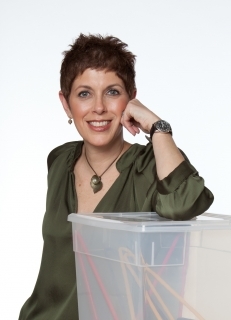
Leslie Josel
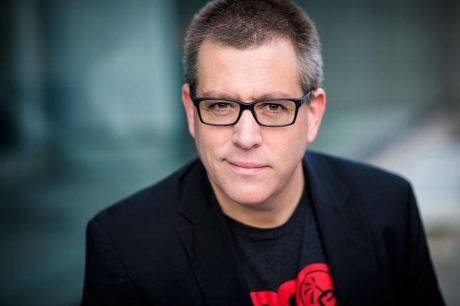
Peter Shankman
May 22, 2018
Radio Recap: The Rise of Long Form Content

In an era when attention spans are shorter than ever, long-form content is making a comeback. Whether it’s in the theater, on the sofa, or at a desk, creators are asking audiences to stay in their seats…for several hours. Take the Broadway hit, “Angels in America” a 7-hour-and-30 minute performance broken up into two evenings. Or Denzel Washington’s “The Iceman Cometh,”another Great White Way smash coming in at 3 hours and 50 minutes, while “Potter,” about who else but Harry Potter, clocks in at 5 hours and 15 minutes spread over two performances with sell-out crowds.
Television, too, is slowly increasing the minutes of screen time for many of its cable shows. Vulture.com recently published an article entitled, “Overly Long Episodes are the Manspreading of TV.” The article discussed how the first episode of this season’s Westworld clocks in at 69 minutes. And Season 2’s fourth episode was a whopping hour and 11 minutes. And in the digital world, some content creators are calling for longer, more in-depth engagement techniques, so word counts are now toppling the 4000 mark. Is longer better? What’s the reason behind these extensions? Are people paying attention?
Here with me to discuss the rise of long-form content is online marketer, Neil Patel and Broadway’s New York Stage Review critic, Elysa Gardner.


May 16, 2018
Radio Recap: Brain Hacking

From classical music to transcranial direct-current stimulation to the Mediterranean diet to nootropics, the days of only using 10% of our brain are over. Reporter David Adam claimed to have boosted his IQ using electrical brain stimulation. His goal was to supercharge his brain for a Mensa exam the following week, and it worked—he’s now a member.
For Bryan Johnson, the founder and CEO of neuroscience startup Kernel, the question is not if, but when we all will have computer chips in of our brains. Johnson founded Kernel with more than $100 million of his own money in order to understand the human brain so that we may one day program it to improve.
What could you do with a chip in your head that linked directly to the Internet? Win every bar trivia contest ever, I bet. The most controversial approach to neuroenhancement isn’t in stimulating the brain, but in reengineering it with genome-editing technology, or changing part of an embryo’s genome, one nucleotide at a time.
Is our quest for more brain power possible and, if so, what are the effects—and how soon can I sign up? Here with me to discuss hacking the brain is Dr. Kamran Fallahpour, Founder and Director at the Brain Resource Center,and Geoffrey Woo, the CEO and co-founder of nootropics subscription service, HVMN (pronounced HUMAN).

Geoffrey Woo
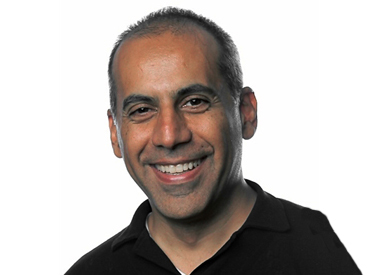
Dr. Kamran Fallahpour
May 9, 2018
Radio Recap: Building Entrepreneurs
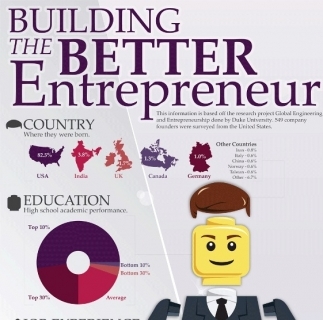
Innovator and inventor, Thomas Edison, once said, “Vision without execution is hallucination,” and my guests today can attest to the importance of vision in starting successful entrepreneurial careers.
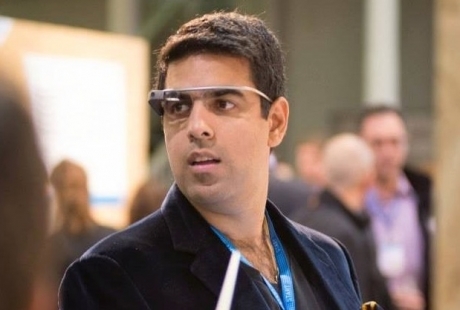 Long before Sachin Dev Duggal became the Chief Wizard at Engineer.ai (Chief Wizard is his official title—how cool is that?),Sachin was an advocate of the environment, having spoken publically about environmental change when he was only 12. Sachin went on to help write the declaration of youth rights for the U.N. and became an entrepreneur at the ripe old age of 15 when he and his best friend formed the software company SMX Corporation (nowSD2Labs). It was a vision of global change that propelled Sachin to become the successful serial entrepreneur and charitable founder he is today.
Long before Sachin Dev Duggal became the Chief Wizard at Engineer.ai (Chief Wizard is his official title—how cool is that?),Sachin was an advocate of the environment, having spoken publically about environmental change when he was only 12. Sachin went on to help write the declaration of youth rights for the U.N. and became an entrepreneur at the ripe old age of 15 when he and his best friend formed the software company SMX Corporation (nowSD2Labs). It was a vision of global change that propelled Sachin to become the successful serial entrepreneur and charitable founder he is today.
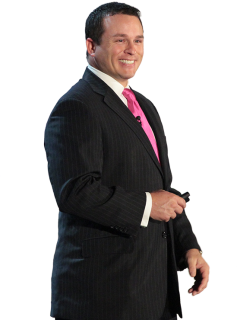 Damien Elston started sharing his personal vision of helping others with wealth management after a ski accident upended his sales career. Bed ridden and unable to work, Damien realized the same traits that went into entrepreneurialism were the same skills that went into sales. Damien began sharing his vision of transformation over transaction and is now a top business strategist. Damien and Sachin are here today to discuss how their visions helped build their careers.
Damien Elston started sharing his personal vision of helping others with wealth management after a ski accident upended his sales career. Bed ridden and unable to work, Damien realized the same traits that went into entrepreneurialism were the same skills that went into sales. Damien began sharing his vision of transformation over transaction and is now a top business strategist. Damien and Sachin are here today to discuss how their visions helped build their careers.
May 2, 2018
Radio Recap: Mental Prep for Entrepreneurs

While it might not seem like our emotional feelings and data are linked on a surface level, the two are interconnected in a way that can actually optimize decision-making, and ultimately, performance. The brain responds to everything in either a positive or negative emotion—like excitement, fear or anxiety.If subconscious emotions are ignored, they play out by coming across as desperate, angry or afraid. But our motions can be recognized and made conscious to better successful and beneficial reactions and outcomes.
This is called “radical performance” and its techniques can be learned with the help of a mental skills coach and a heavy dose of self-discipline. Mental skills are being touted in all areas of business — from portfolio management to hedge fund trading to high-performance sales to competitive athletic. (Currently only three Major League Baseball teams do nothave a Mental Performance Department on staff.) There’s no place mental preparation is more prevalent than in the high-risk world of entrepreneurialism.
Here with me to discuss how to mental prepis Radical Performance Coach, Denise Shull. And, on the high-risk side of things, Otto’s Tacos founder Otto Cedeno who quit a cushy tech job to move in with his parents and take a stab in the cut-throat restaurant industry.
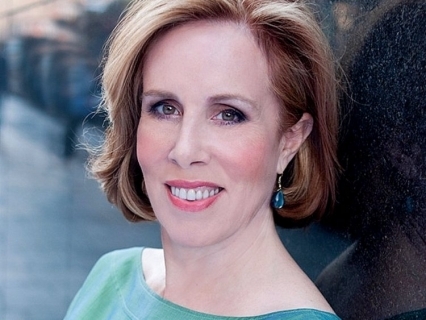
Denis Shull
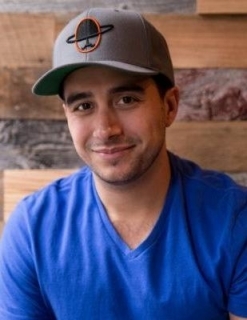
Otto Cedeno
April 26, 2018
Radio Recap: The Women of IBM
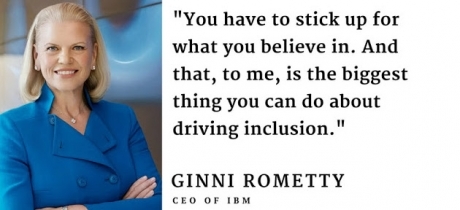
At IBM, tens of thousands of women have been making contributions to the advancement of information technology for almost as long as the company has been in existence. Where many companies date their affirmative action programs to the 1970s, IBM has been creating meaningful roles for female employees since the 1930s. This tradition was not the result of a happy accident. Instead, it was a deliberate and calculated initiative on the part of Thomas J. Watson, Sr., IBM’s legendary leader. Watson discerned the value women could bring to the business equation, and he mandated that his company hire and train women to sell and service IBM products. Now IBM is not only currently led by Virginia Rometty, the company’s first female CEO, but some of the most innovative sectors of IBM are also led by women.
Here with me today are three women proudly leading industries that are typically regarded as male dominated. Kathryn Harrison is a Director of IBM Blockchain, where she is responsible for conceptualizing, developing and delivering IBM Blockchain software products. Rachel Liddell is Manager of Watson Client Relations. Rachel delivers interactive presentations to demonstrate the power of Watson AI to clients, and influencers. And Briana Frank is a Director of IBM Cloud. She works closely with teams of offering managers to validate the technical strategy and design experience to bring cloud offerings to market.

Rachel Liddell

Briana Frank
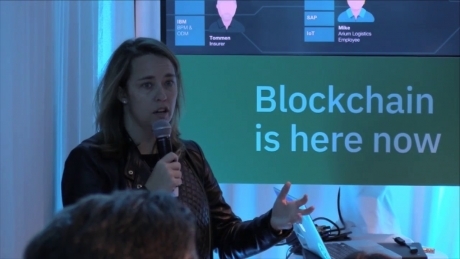
Kathryn Harrison
April 18, 2018
Radio Recap: Pre-Teen Technology
 As technology dominates our lives, learning basic computer programming isn’t just a good idea, it’s an essential skill for children—especially in terms of career outlook. Currently there are around 500,000 open computing jobs nationwide but last year, only about 40,000 computer science students graduated into the workforce. According to the Bureau of Labor Statistics, computer-related jobs are expected to grow at the faster-than-average rate of 12% through 2024. It’s also reported that the median annual salary is more than 2x the average for all occupations. With 90% of parents that want their children to learn computer science, but only 40% of schools teaching computer programming, what’s to be done? Bring in the kids!
As technology dominates our lives, learning basic computer programming isn’t just a good idea, it’s an essential skill for children—especially in terms of career outlook. Currently there are around 500,000 open computing jobs nationwide but last year, only about 40,000 computer science students graduated into the workforce. According to the Bureau of Labor Statistics, computer-related jobs are expected to grow at the faster-than-average rate of 12% through 2024. It’s also reported that the median annual salary is more than 2x the average for all occupations. With 90% of parents that want their children to learn computer science, but only 40% of schools teaching computer programming, what’s to be done? Bring in the kids!

Avanti Sharma is the co-founder and 11-year-old tech specialist for Workshop 4 Me, a company that introduces children problem solving through computer science. Avanti’s an award-winning pre-teen in tech and teaches coding to her peers.
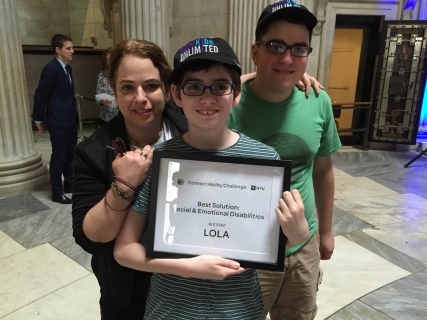 Beth Rosenberg is the co-founder of TechKids Unlimited, a nonprofit tech-based educational organization for learning disabled kids ages 7 to 20 which she co-founded with her son, Jack
Beth Rosenberg is the co-founder of TechKids Unlimited, a nonprofit tech-based educational organization for learning disabled kids ages 7 to 20 which she co-founded with her son, Jack
April 11, 2018
Radio Recap: Second Act Careers
 Career transformations are now more common thanks to the rise of technology and entrepreneurialism. We’ve all seen the inspiring exposés about the lawyer turned organic farmer or of actor Daniel Day Lewis who once briefly quit acting to explore show making. But reinventing your career trajectory isn’t only for retirement and it isn’t as simple as pivoting from a job that doesn’t take shape or fulfill you the way it used to either. Second act careers often repurpose lucrative professions into new ventures. This could mean recycling hobbies or taking the skills of former jobs and weaving together your interests and passions into new opportunities for job growth.
Career transformations are now more common thanks to the rise of technology and entrepreneurialism. We’ve all seen the inspiring exposés about the lawyer turned organic farmer or of actor Daniel Day Lewis who once briefly quit acting to explore show making. But reinventing your career trajectory isn’t only for retirement and it isn’t as simple as pivoting from a job that doesn’t take shape or fulfill you the way it used to either. Second act careers often repurpose lucrative professions into new ventures. This could mean recycling hobbies or taking the skills of former jobs and weaving together your interests and passions into new opportunities for job growth.
As Nancy Collamer, the author of “Second Act Careers,” says,” “It’s important to pay attention to what you already know, do well, and enjoy. There are always parts of your work and life experiences— no matter how seemingly insignificant— that can serve as a bridge into a fulfilling semi-retirement career.”
If you’re ready to begin exploring a potential second act career, you’ve picked the right episode of Dot Complicated to listen to. Here with me to discuss their own adventures repurposing their career are Supermodel turned lifestyle and beauty editor, Veronica Webb and former advertising and marketing guru turned owner of fashion house Tibi, Amy Smilovic.

Tibi founder Amy Smilovic

Beauty editor, Veronica Webb



